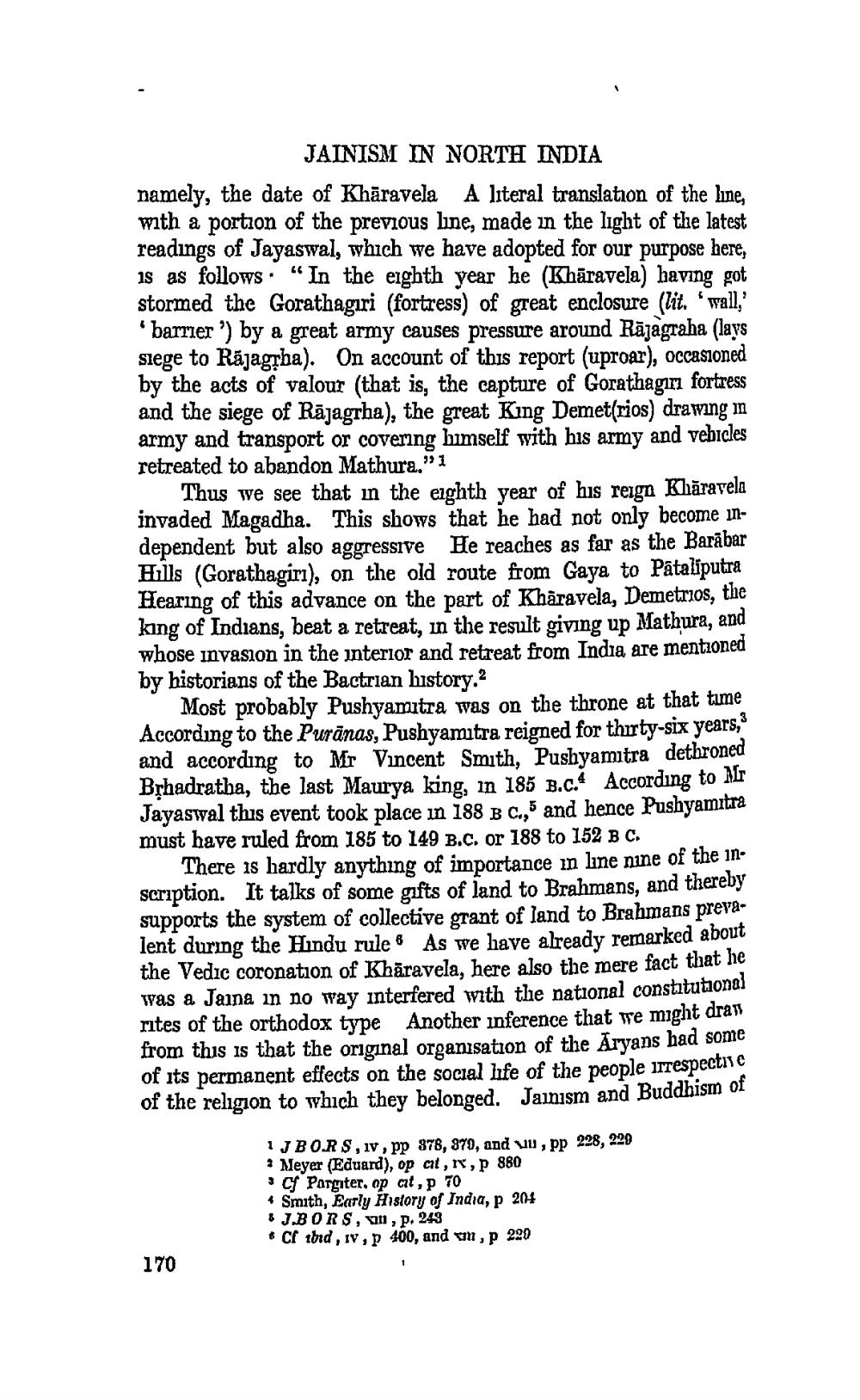________________ JAINISM IN NORTH INDIA namely, the date of Kharavela A literal translation of the line, with a portion of the previous line, made in the light of the latest readings of Jayaswal, which we have adopted for our purpose here, is as follows: "In the eighth year he (Kharavela) having got stormed the Gorathagiri (fortress) of great enclosure (lit. 'wall, 'barrier ') by a great army causes pressure around Rajagraha (lays siege to Rajagpha). On account of this report (uproar), occasioned by the acts of valour (that is, the capture of Gorathagin fortress and the siege of Rajagrha), the great King Demet(rios) drawing m army and transport or covering himself with his army and vehicles retreated to abandon Mathura."1 Thus we see that in the eighth year of his reign Kharavela invaded Magadha. This shows that he had not only become independent but also aggressive He reaches as far as the Barabar Hulls (Gorathagiri), on the old route from Gaya to Pataliputra Hearing of this advance on the part of Kharavela, Demetrios, the king of Indians, beat a retreat, in the result giving up Mathura, and whose invasion in the interior and retreat from India are mentioned by historians of the Bactrian history.2 Most probably Pushyamitra was on the throne at that time According to the Puranas, Pushyamitra reigned for thirty-six years, and according to Mr Vincent Smith, Pushyamitra dethroned Bhadratba, the last Maurya king, in 185 B.C. According to ALT Jayaswal this event took place in 188 B C.,' and hence Pushyamitra must have ruled from 185 to 149 B.C. or 188 to 152 BC. There is hardly anything of importance in line nine of the in scription. It talks of some gifts of land to Brahmans, and thereby supports the system of collective grant of land to Brahmans prevalent during the Hindu rule 6 As we have already remarked about the Vedic coronation of Kharavela, here also the mere fact that he was a Jaina in no way interfered with the national constitution rites of the orthodox type Another inference that we might draw from this is that the original organisation of the Aryans had some of its permanent effects on the social life of the people irrespecto of the religion to which they belonged. Jainism and Buddhism 01 1 J BOR 9, 1v, pp 878, 370, and vu , pp 228, 229 Meyer (Eduard), op cit, 1,P 880 * CF Pargiter, op at, P TO + Smith, Early History of India, p 204 * J.BORS, W, P, 243 + Cl thd, 1v, 400, and m, p 220 170




